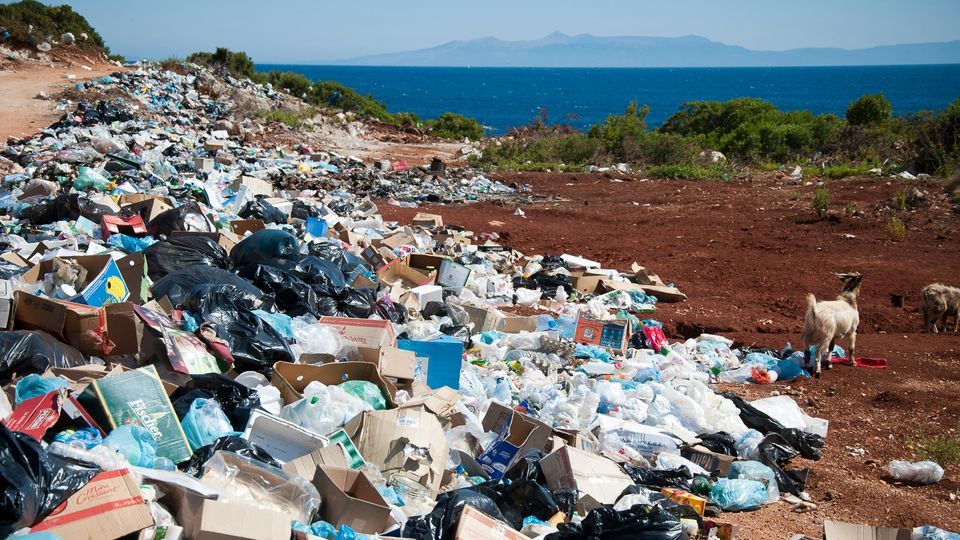Global Plastics Treaty Negotiations End With No Deal for Second Time
Global talks failed to agree on a landmark treaty to end plastic pollution.

Complete the form below to unlock access to ALL audio articles.
Talks to develop an international treaty on ending plastic pollution have once again ended in disappointment.
Delegates from 184 countries arrived in Geneva, Switzerland, this week to resolve outstanding disagreements on limiting plastic production, managing existing plastic products and supporting the implementation of a plastics treaty in developing countries.
But negotiations have now ended without producing a treaty.
Plastics opposition
Back in 2022, a UN Environment Assembly resolution requested the adoption of a legally binding global plastics treaty by the end of 2024.
In an attempt to meet this deadline, the first plastic treaty negotiations were held in Busan, South Korea, between November 25 and December 1, 2024.
One group of around 100 countries – known as the High Ambition Coalition (HAC) – sought a comprehensive treaty that included commitments to reduce plastic production. But another, smaller group of oil-producing nations (such as Saudi Arabia, Russia and Iran) opposed such restrictions.
Instead, delegates from this latter group argued for a treaty prioritizing waste management and recycling.
With no compromises reached on these issues, the Busan talks ended without a treaty.
What’s the problem with plastics?
Levels of plastic production and pollution are at all-time highs. Emerging research has established that degraded pieces of plastic, microplastics, can now be found everywhere from human organs to the Mariana Trench. The health effects of this kind of pollution are still being studied, but papers have already linked the plastics to mitochondrial damage, autophagic cell death, increased oxidative stress, cognitive dysfunction and intestinal injuries.
Many HAC delegates were hopeful that the Geneva talks this week would be more productive, but the same arguments and divides that compromised the Busan talks played out in much the same way.
Again, the 100 or so nations making up the HAC advocated for caps on plastic production. But these measures were left out of a treaty draft presented during the talks on Wednesday, August 13.
This draft was rejected by delegates.
A second draft, presented on Friday, August 15, didn’t include a limit on plastic production but recognized that current levels of production and consumption were “unsustainable” and global action was needed.
This draft, too, was rejected by delegates.
The meeting’s chair, Ecuadorian ambassador Luis Vayas Valdivieso, said the talks will resume at a later date.
Poor reaction to failed plastics talks
The failure to produce a plastics treaty for a second time has drawn dismay from environmentalists and environmental science researchers.
“The collapse of the Geneva negotiations on a global plastics treaty is a devastating missed opportunity to tackle this crisis at its source,” Dr. Nina Wootton, a marine researcher from The University of Adelaide, said in a statement to Australia’s Science Media Centre.
“After nearly three years, nations have walked away without agreement, with powerful plastic-producing countries, including the US, blocking caps on virgin plastic production and bans on harmful chemicals. The science is clear: recycling alone will not solve this problem.”
Professor Steve Fletcher, director of the Revolution Plastics Institute at the University of Portsmouth, shared the same sentiment with the UK’s Science Media Centre.
“The lack of an agreement in Geneva is both concerning and disappointing. This was a critical opportunity to end plastic pollution for future generations.”
“Whilst there has been no consensus, it is important to recognize that this is because ambitious countries refused to accept a watered-down treaty,” he added.
“The draft treaty on the table omitted key actions to prevent plastic pollution, including measures to control the production of plastic, regulate the use of chemicals in plastics, and establish global rules on plastic products.”
Fletcher, nonetheless, believes a resolution is still possible.
“The goal set in 2022 to end plastic pollution across its full life cycle is still achievable,” he said. “But it will require governments to use the coming months to regroup, have frank political discussions, and commit to a more decisive approach when they next meet.”
“The world cannot afford another round lost to procedural deadlock. The plastics crisis is worsening, the science is clear, and the solutions are well known. What is missing is not knowledge, but the will to match words with binding action.”




